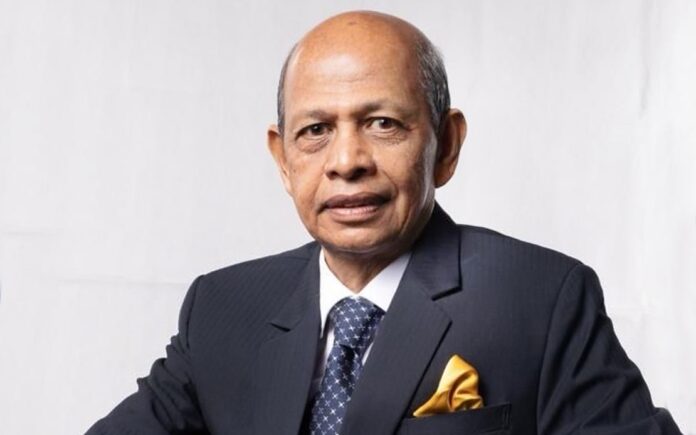KUALA LUMPUR, Dec 21 — China’s robust success in the Technical and Vocational Education and Training (TVET) programme is among the new areas that Malaysia can take advantage of and emulate, in line with the government’s decision to include the Great Wall country in the Look East Policy.
Former Malaysian Ambassador to China (1998-2004) Datuk Abdul Majit Ahmad Khan said both countries, can enhance the TVET programme as it is crucial to meet the demands of Artificial Intelligence (AI), digitalisation and Industrial Revolution 4.0.
“Our immediate need is on the question of technical training to fit into the current industry requirement because we are moving towards digitalisation, we’re moving towards AI and all applications now in our life have these two elements of AI and digitalisation.
“To look forward I think I would like to suggest that Malaysia and China look into how we can enhance TVET training between the two countries, involving technical universities, the industry, academia and also relevant government agency at both sides,” he said when contacted by Bernama.
Prime Minister Datuk Seri Anwar Ibrahim, who is also the finance minister, told Asahi Shimbun in an interview in Tokyo on Dec 17, 2023, that Malaysia, which has long looked to Japan and South Korea as models for economic development, is now also interested in learning from China.
Taking examples of the Belt and Road Initiative (BRI), the massive China-led infrastructure project, Abdul Majit said that Malaysia, which now has the East Coast Rail Link (ECRL) project under the BRI, should immediately seize the opportunity, especially in the context of TVET development cooperation.
He said China, which started reform and opening up four decades ago, had started organising workshops in many countries, including Thailand, providing training facilities and programmes to help foster local talents with the needed skills and capabilities under the BRI.
“China has moved to a new part and phase of the BRI and one of it is TVET. They have started workshops in many countries, where they bring the interns and also have exchanges with universities in China, so this one area Malaysia has to step up because we don’t have a structured programme with China on this,” he said.
According to Global Times, China has ramped up efforts to promote the development of its vocational education system. The country has established the world’s largest vocational education system, with currently a total of 11,300 vocational education schools with more than 30 million students.
While Malaysia also commits to reducing hardcore poverty, Abdul Majit, who is an Adjunct Professor at Universiti Malaya (UM) Institute of China Studies and President of the Malaysia-China Friendship Association (PPMC), also said that China is the best country for Malaysia to emulate the poverty alleviation programme.
Abdul Majit said Malaysia may advance their development, experts and officials by taking a cue from China’s achievement in its national development plans, with poverty alleviation being one of its key objectives.
“From my experience, the Chinese poverty alleviation programme is they are very targeted as they are based on data. For example, in the village, if there are things that need to be upgraded, roads, housing, facilities, and infrastructure, they will concentrate on that,” he said.
In February 2021, President Xi Jinping announced that extreme poverty in China had been eradicated.
According to a Xinhua report, through continuous efforts, the final 98.99 million impoverished rural residents in China had all been lifted out of poverty, and all 832 impoverished counties and 128,000 villages had been removed from the poverty list by the end of 2020.
Meanwhile, Associate Professor Dr Khairunesa Isa, a lecturer in the Department of Social Sciences at Universiti Tun Hussein Onn Malaysia (UTHM), said that the expansion of the Look East Policy to include China is a more strategic step in planning the direction of the country’s development and progress in various fields.
She said that it is also seen as a way to form a stronger Asian bloc and reduce excessive dependence on Western countries.
“This collaboration will build a strategic network that can establish a win-win concept, and most importantly, we can learn the strategies, methods, and approaches that China employs, enabling it to become the second dominant economic power in the world after the United States,” she added.
















